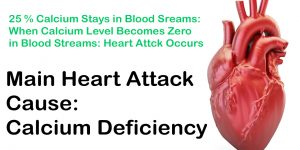August 2, 2017 at 3:41 am
The adult age class is that age group greater than 65 years of age and this age group requires special consideration in their drug therapy. They are also constituting a great number and factors like increase birth rate, decrease in mortality associated with the development of antibiotics and vaccines, improvement in mortality in coronary artery disease are favorable conditions that may be contributed to their increasing population
Adult experiences higher rate of chronic diseases condition in comparism to the other population at large and are more likely to use health care services.
Medication related problems in geriatric patient may arise because of chronic or long stay on medications, chronic diseases, problems of ageing and several other factors in the elderly that signal potential trouble includes degree of illness, inability to work, poor appetite and nutrition, poor fluid intake, immobility, multiple diseases, confusion, forgetfulness and lack of supervision.
Such potential problem that may be associated with these problems include polypharmacy, Adverse drug reaction, appropriateness of therapy, compliances, confused over treatment, use of wrong dosage and use of wrong drugs.
A more important in this age group is that ageing affects the pharmacodynamics and pharmacokinetics. Ageing process alone influence drug response and several other parameters at varying degrees for examples, the fraction of a drug absorbed (bioavailability or F) plasma drug half-life (t1/2), volume of distribution, metabolic and renal clearance from the body are also altered among the elder group. Therefore, correct age and dosing intervals can be better administered if potentially affected drugs are known. Similarly, Absorption, distribution, Metabolism and Excretion pharmacokinetic are altered in the elderly group, many adverse drug reaction encountered in the elderly patients are as a result of dose related pharmacokinetic changes and thus may be prevented if these changes are considered when prescribing a drug.
DRUG ABSORPTION IN ELDERLY
Age related physiological changes in the elderly have influence on the rate and in some cases the extent of drug absorption in elderly patients. Similarly, product formulations, inherent drug properties, patient variable can also influence the rate and in some cases, the extent of drug absorption. Some elderly patients may have swallowing problems, some may crush sustained release formulated tablets or sublingual tablets. This practice can increase the adverse effect on the absorption, t1/2 and toxicity may increase with extended release or enteric coated or sublingual crushed tablets.
Age related physiological changes that affect drug absorption are;
1. Elevated pH
2. Decrease emptying time
3. Decrease in GIT motility
4. Decrease in intestinal blood flow
Age related changes alone is not what influence the passive transport mechanism by which most drugs are absorbed and medications which undergo first pass mechanism are absorbed more completely in older patients therfpre similar initial and maintenance doses especially when used to manages chronic diseases and required age related.
Age related delay in gastric emptying time allows more contact time in the stomach, this can be a problem for potentially ulcerogenic drugs of NSAID. Similarly, age related delay in gastric emptying time can increase the frequency of drug interaction e.g. antacids
Other problems associated with age related gastric emptying time delay are that It provides more chances for binding and secondly, it may increase absorption of poorly soluble drugs or may delay the onset of action the weakly basic drugs.
Age reduces the active transport mechanism of sugars (galactose), vitamins (especially thiamine and folic acid) minerals. This explains why multivitamin should be used in elderly; this changes the absorption of drugs.
Changes in the gastric motility/blood flow also affect the extent of absorption i.e the peak concentration and the time to peak otherwise called the rate of absorption.
Changes in gastric pH affect the pH dependent dissolution e.g. in the sustained release or enteric coated tablet drugs.
Reduce tissue surface area for absorption may not have serious clinical significance on the drug absorption.









